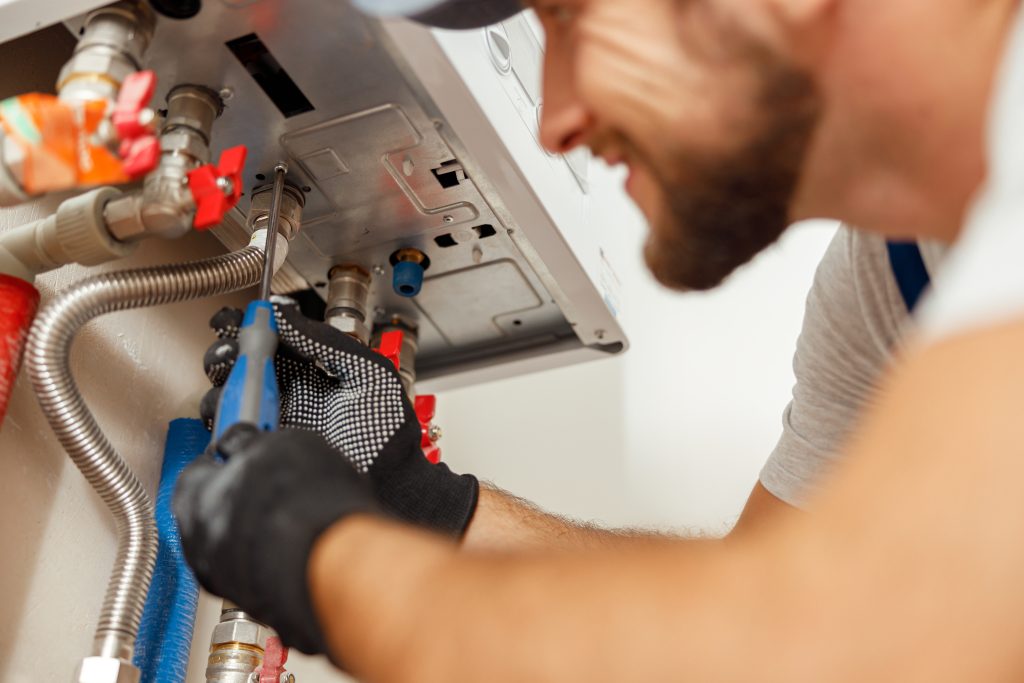The boiler is an indispensable component of your home, especially during the harsh winter months.
It not only provides you with hot water but also ensures your home remains warm and cosy. However, like any other household appliance, boilers have a shelf life.
A malfunctioning boiler during winter is not just inconvenient but can be outright dangerous. Therefore, it’s crucial to know when your boiler is giving you warning signs that it may be time for a replacement.
This blog aims to guide you through various signs and indicators that can help you make an informed decision about whether to repair or replace your boiler this winter.
Age of the Boiler
Boilers are generally designed to last for a good number of years—usually around 15 to 20.
But if your boiler has crossed the 15-year mark, you might want to start considering a replacement. Older boilers are not only prone to breakdowns but also often lack the energy efficiency that modern systems offer.
While age is not the sole criterion for deciding whether your boiler needs replacing, it serves as an important point for evaluation.
If your boiler is old but still functions adequately, it might continue to serve you well.
However, the risk of breakdown increases with age, and you might find yourself with a malfunctioning boiler just when you need it the most—during winter.
Inconsistent Heating
A boiler that’s on its last legs may struggle to maintain a consistent temperature across your home.
You might notice that some rooms are too hot while others remain cold. Inconsistent heating is not only uncomfortable but can also be a sign that your boiler is losing its efficiency.
During winter, this can be particularly problematic, as even small fluctuations in indoor temperature can be noticeable.
If you find yourself constantly adjusting the thermostat to maintain a comfortable temperature, it might be an indicator that your boiler needs a thorough check-up, if not a complete replacement.
Frequent Repairs
Boilers usually require annual servicing and maintenance to ensure they’re in good working condition.
However, if you find that your boiler needs repairs more often than just the yearly check-up, this could be a warning sign.
Frequent breakdowns not only bring about the inconvenience of a cold home but also result in recurring costs.
In the long run, these costs can add up, and you may realise that investing in a new boiler could be more cost-effective.
Before you find yourself during winter with a broken boiler, tally up the costs and consider whether it’s more economical to replace it.
Energy Bills on the Rise
Another major indicator that your boiler might need replacing is a sudden spike in your energy bills.
Older or malfunctioning boilers have to work harder to produce the same amount of heat, leading to increased fuel consumption.
If you notice that your energy bills have been consistently high over a few billing cycles, it’s worth checking if the boiler is the culprit.
A new, energy-efficient boiler may require an upfront investment but can save you money in the long term by significantly reducing your energy bills.
Unusual Noises
Boilers are generally quiet appliances, so any unusual noises could be a cause for concern.
Sounds such as banging, whistling, or gurgling are often indicators of problems like air in the system, low water pressure, or even impending mechanical failure.
Ignoring these noises and hoping they’ll go away on their own is not advisable.
Instead, it’s essential to have a professional look into it immediately.
If the noises are accompanied by other signs of inefficiency, like inconsistent heating, it might be time to replace your boiler.
Visual Signs
In some instances, your boiler will give you visual cues that it’s not in the best of health. Signs like leaks, rust, or soot around the boiler are clear indicators that immediate attention is needed.
Leaks can lead to water damage in your home, and rust or soot indicates that there might be internal issues that need addressing.
Don’t overlook these signs as minor cosmetic problems; they can often point to significant internal issues that could lead to a breakdown if not attended to promptly.
New Technology and Features
Modern boilers come with a plethora of features designed to improve both efficiency and user experience.
From smart thermostats that allow you to control your heating remotely to advanced safety features and better energy efficiency ratings, the newer models offer significant improvements over older systems.
If your current boiler lacks these features, upgrading can make your life easier while potentially saving you money in the long run.
Moreover, modern boilers are designed to be more eco-friendly, helping you to reduce your carbon footprint.
Professional Consultation
It’s always advisable to seek professional advice when considering replacing your boiler.
A certified technician can give you an unbiased evaluation of your current system’s performance and recommend whether a repair or replacement is the best course of action.
Keep in mind that while some issues can be resolved with a simple repair, others may indicate that your boiler has reached the end of its lifespan.
Make sure to choose a reliable and certified service provider for a comprehensive diagnosis and quality workmanship.
Conclusion
Your boiler plays a pivotal role in ensuring a comfortable living environment, especially during winter.
While regular maintenance can extend its lifespan, there comes a point when a replacement is more sensible, both financially and for peace of mind.
From increased repair costs to higher energy bills and the absence of modern features, various indicators can help you decide when it’s time for a new boiler.
Being proactive can save you the distress of suddenly finding yourself in a cold home in the dead of winter, not to mention the potential cost savings in the long run.





